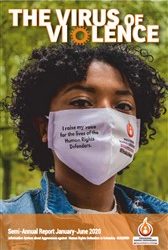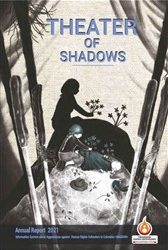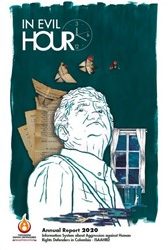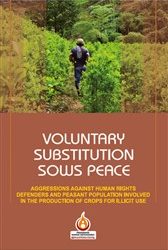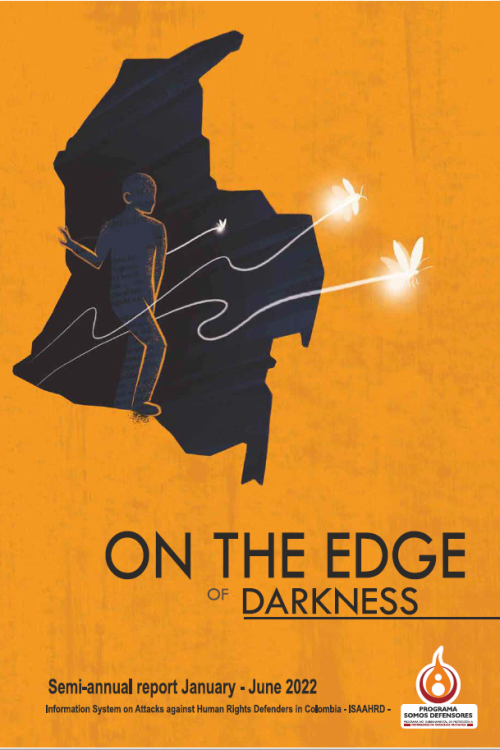
This biannual report covering the period January – June 2022 is situated at an electoral juncture marked by the pugnacity of the campaigns and the upsurge of violence in the territories, but at the same time, by an unprecedented result (which would occur weeks later) with the triumph of a progressive coalition both in the Congress of the Republic and in the presidency, which constitutes a milestone in the republican history of the country.
The election of Gustavo Petro and Francia Márquez as president and vicepresident, respectively, not only represents a profound political twist, but also marks a turning point in terms of change in the dominant social scenarios. On the one hand, by electing as president a man who, just as at one point in his life opted for armed struggle, later opted for peace and constancy in a political exercise framed in the channels of democracy for about three decades. On the other hand, by choosing as vicepresident a black woman, a leader forged in a context of socioeconomic precariousness, overcoming all kinds of difficulties and threats in the heat of social struggles.
In that order of ideas, the past months of the year have been presented with both clarity and darkness. Clarity due to the hope generated by the electoral result that was expressed at the polls, overcoming the fear imposed by violence. Desolation due to the increase in the number of murders of human rights defenders during the first half of the year. 99 murders verified by the Somos Defensores Program Information System, representing an increase of 71% in relation to the same period of the previous year.
In these mixed feelings is one of the reasons that gave rise to the title of this report: On the Edge of Darkness, which seeks to express the desire to end the dark night in order to clear the way for flickering fireflies that illuminate the path of defenders and social leaders; flashes of light aimed at the recognition of their work and their integral protection, through initiatives such as the Emergency Plan for the prevention and protection of defenders and social leaders, assumed by the incoming government from the first day of its term of office.
The title of the report also has a connection to the crime film The Edge of Darkness by director Martin Campell, starring Mel Gibson, which revolves around a murder and the webs of power and interests that surround it. In this publication we also focus the lens on the increase in murders of human rights defenders and social leaders during the first half of the year and, as we have expressed on multiple occasions as Somos Defensores Program, beyond who pulls the trigger it is necessary to reveal who is behind the murders, who benefits from the death or who is disturbed by the work of defense; overcoming impunity for these crimes is a determining factor in addressing selective violence.
The report is composed by four chapters. The first, entitled One Glimmer of Hope, provides some contextual elements that are considered important to frame the aggressions recorded by the Information System in the first semester from two blocks: the loss of territorial control by the State as evidenced by the occurrence of two successive armed strikes, and the turning point marked by the results of the elections for both the Congress of the Republic and the presidency.
The second chapter entitled The Dark Side, as mentioned above, seeks to deepen the look at the increase in murders during the first half of the year based on different factors that mark patterns in this aggression such as the territorial concentration of these events, the weapon used, the profile of the leaders, the place of occurrence, the alleged perpetrators and the preceding events such as threats and forced disappearance, among other aspects that pose an analysis of how the murders occurred in a period with a high record.
The third chapter entitled Paradoxes, as it has in other reports, presents some reflections on the behavior of the international community towards the outgoing government, starting from considering the importance of its accompaniment and support for the defense of human rights, responding to humanitarian crises and providing protection to human rights defenders and social leaders. That said, it is considered that even though the Duque government paid little attention to the concerns of the international community and its commitment to the Peace Agreement, in recent months it received significant political support from some actors in this sector, a situation that is seen as paradoxical.
The fourth chapter contains, as usual, the analysis of the cases of aggressions registered and verified during the semester by the Somos Defensores Program’s Information System. Aspects such as the most affected leaderships, the territorial location of the events and the alleged perpetrators are highlighted, along with some considerations in this regard.
We are aware of the delay in the publication of this semiannual report, which exceeds the usual time frame, and we take this opportunity to apologize to those who have been patiently awaiting its publication.
Finally, our sincere thanks to all those organizations and individuals who provided us with input for this report: Early Warning System SAT of the Ombudsman’s Office; Office in Colombia of the United Nations High Commissioner for Human Rights; Colombia Europe United States Coordination; Association of Indigenous Councils of Northern Cauca; Development and Peace Foundation FUNDEPAZ; Permanent Committee for the Defense of Human Rights Risaralda; Yariguíes Corporation; Territories for a Dignified Life; ORIPAP; CINEP; Sumapaz Foundation; Joel Sierra Human Rights Foundation; Campaign for Life, Integrity, Dignity and Autonomy of Social and Popular Organizations Soacha; Corporation for Education and Citizen Selfmanagement CEAC; Colombia Diversa and Sisma Mujer. Thank you for your trust and your belief in the importance of these reports.
We would also like to thank the cooperation agencies and organizations that support us in our daily work and encourage us to continue with it, such as Bread for the World, Misereor, Global Witness, Amnesty International and Front Line Defenders, and especially the Royal Norwegian Embassy in Colombia and Diakonia Sweden, which have constantly supported and trusted in the value and importance of these reports, not only as a tool for dissemination and analysis of the aggressions faced by defenders, but also as a contribution to the historical memory.


